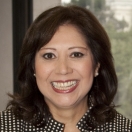
Memorial Day is a time when our nation honors those fallen men and women of the military who have paid the ultimate price to defend the United States. It is also a time when we should reflect on what we can and are doing to support our active duty veterans who hope to one day successfully complete their missions and come home safely. These veterans are also seeking a piece of the “American Dream” — to own a home, have a good job, and receive a good wage from jobs created for them by a grateful nation.
To achieve this, I have begun an employment campaign based on the vision of “Good Jobs for Everyone.” Our goal is to assist veterans with resources and expertise necessary to obtain meaningful careers and maximize their employment opportunities.
We have had many successes, including the veterans Transition Assistance Program which provides employment workshops delivered via a partnership involving several cabinet agencies along with my department’s Veterans’ Employment and Training Service. We are also updating TAP courses with an online e-learning platform and pre-work assessment tools that will make the courses even more relevant to a 21st century workplace.
We have provided funding for programs such as Jobs for Veterans State Grants, the Homeless Veterans’ Reintegration Program and One-Stop Career Centers where various representatives provide current, homeless, previously incarcerated and disabled veterans with intensive employment services and assistance. In addition, we have partnered with the U.S. Chamber of Commerce and other businesses to set up hiring fairs around the country to communicate the value of hiring veterans and show how to access this extraordinary source of talent.
VETS and my department’s Employment and Training Administration’s Job Corps program have created a demonstration project which offers additional educational and career technical training to veterans at one of three specific Job Corps centers: Earle C. Clements Job Corps Center in Morganfield, KY, Excelsior Springs Job Corps Center in Excelsior Springs, MO, and Atterbury Job Corps Center in Edinburgh, IN. Each center has 100 dedicated slots for veterans to live and train together. Another pilot project in the state of Washington has VETS working in partnership with a team of volunteers who will initiate contact with rural veterans, check on how their careers are going and, if needed, make them aware of additional support available from government and non-government organizations.
How have veterans faired in these various programs? Let them tell you themselves.
Washington state Army Reserve veteran Geoffrey Talkington who has served multiple deployments to Iraq and Kuwait, wanted career help but lived miles from the closest major city. Through the VETS rural outreach program, he received months of commercial truck training. Upon graduation he was offered a good paying job with a commercial trucking company. Talkington said through training, “I have a better quality of life” and an opportunity “to reinvent myself.”
Failed business ventures caused Navy veteran Harold Coleman to become poor and homeless. Coleman then heard about and enrolled in a department-funded homeless veterans program in St. Louis, Mo. There he was taught about green jobs and eventually achieved a certificate as a building energy auditor. His success story has come full circle - he now teaches energy efficiency to veterans and the unemployed. Coleman said the program provided him resources “to achieve my goals and set me on a path of success.”
Twenty-two year old Army veteran Kiersten Coats enrolled in the VETS/Job Corps pilot program at the Clements Job Corps in Kentucky. Coats studied electrical work, carpentry and landscaping with an eye towards a career in facilities maintenance. Coats said the program “is a continual learning experience” helping her to acquire new skills for the job market.
In summary, success will be measured by the impact our programs have on helping our veterans find and keep good jobs in today’s modern economy. Although their uniforms may differ and their stories are varied, The Labor Department will continue to work tirelessly and innovatively to help all veterans create meaningful lives, develop rewarding careers and become productive citizens and leaders in their communities.



